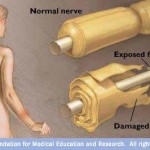Guillain-Barre syndrome weakens legs of NFL quarterback
Guillain-Barre syndrome, a peripheral nervous system disorder, has caused the legs of Heisman Trophy winner Danny Wuerffel to weaken according to a report in the New York Times.
Danny Wuerffel injured his shoulder when playing for the Washington Redskins in 2002 and sought the help of orthopedic surgeon Dr. James Andrews. The quarterback was back in Alabama almost ten years later this time for treatment of symptoms of Guillain-Barre syndrome.
The disease develops when the immune system attacks the body's own nerves after an infection such as the flu. It has a characteristic pattern of ascending paralysis, starting in the hands and feet and upwards toward the legs and torso.
If left untreated, Guillain-Barre syndrome can cause breathing problems and paralysis. So far, Danny Wuerffel complains of leg weakness and headaches and with his prompt treatment is likely to be spared from the more serious complications of the disease.
"It puts life into perspective, doesn't it?" the 37-year old said. "The last time I was here we thought the shoulder was serious stuff."
Wuerffel is expected to receive treatment comprising of intravenous immunoglobulins or plasmapharesis and other aspects to support recovery. Loss of function may happen in some patients, and rehabilitation is part of the overall care to re-establish independence and performance of activities of daily living.
Guillain-Barre syndrome, first described by French doctors Georges Guillain and Jean Alexandre Barre in 1916, strikes just 1-2 people per 100,000 each year.
Some early studies suggest that flu vaccines can cause Guillain-Barre syndrome although evidence of a direct link is weak. But those with a history of the disease is cautioned against receiving flu shots.
